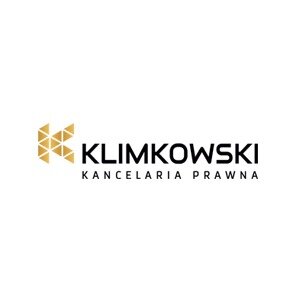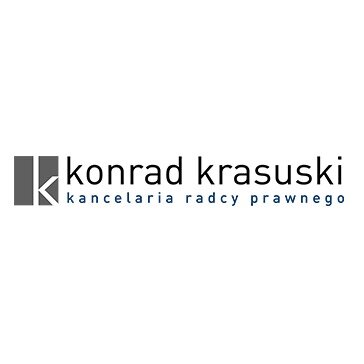Best Immigration Lawyers in Poland
Share your needs with us, get contacted by law firms.
Free. Takes 2 min.
Or refine your search by selecting a city:
List of the best lawyers in Poland
About Immigration Law in Poland
Poland, as a member of the European Union, implements a structured immigration framework governed by both national and EU regulations. The country has become an attractive destination for immigrants due to its economic growth and cultural opportunities. Immigration law in Poland covers a wide range of issues, including visa regulations, residency permits, work permits, and citizenship applications. Navigating through these legal requirements can be complex, making it essential to understand the specific legal context of immigration in Poland.
Why You May Need a Lawyer
Immigration matters can be intricate, and a legal misstep might lead to delays, rejections, or even legal consequences. Here are common situations where legal assistance may be beneficial:
- Applying for a Work Permit: Secure employment-based visas or permits accurately and efficiently.
- Residency Applications: Assistance with residence permits for both short-term and long-term stay.
- Citizenship Procedures: Navigating the steps required for acquiring Polish citizenship.
- Appealing Visa Decisions: Legal help in challenging denied visa applications.
- Deportation or Detention Issues: Representation and strategic counsel in cases of legal action against immigrants.
- Family Reunification: Facilitating the legal procedures for bringing family members to Poland.
Local Laws Overview
Key aspects of Polish immigration law include:
- The Foreigners Act: Governs the entry, stay, and exit of foreigners in Poland, providing details on different types of visas and permits.
- Visa Regulations: Based on the purpose and length of stay, individuals may require different visas, such as Schengen visas for short stays or national visas for extended stays.
- Work Permits: Required for non-EU nationals who wish to work legally in Poland, with specific categories based on job type and duration.
- Residency Permits: Ranges from temporary to permanent permits, depending on the individual's situation and qualifications.
- EU Regulations: As part of the EU, Poland follows directives affecting migration, asylum, and border controls.
Frequently Asked Questions
What types of visas are available in Poland?
Poland offers several types of visas including Schengen visas (for stays up to 90 days within 180 days), national visas (for stays longer than 90 days), and work visas. Each type is based on the applicant’s purpose of stay.
How can I apply for a residency permit?
Residency permits can be applied for at regional Voivodeship offices within Poland. The process involves submitting relevant documentation, including proof of purpose for staying, financial stability, and health insurance.
What is the process for obtaining Polish citizenship?
Polish citizenship can be acquired through descent, marriage, or by living legally in Poland for an extended period, generally 10 years for non-EU nationals. There are specific procedural and documentation requirements for each route.
Do I need a work permit to work in Poland?
Non-EU nationals typically need a work permit to legally work in Poland. Exceptions exist for family members of Polish citizens and for certain professionally qualified personnel.
How can I appeal a visa rejection?
You can appeal a visa rejection through written submission to the consul who issued the decision, typically within 14 days of receiving the decision. Legal assistance can significantly improve the chances of a successful appeal.
Can my family join me in Poland?
Yes, family reunification is possible. You can apply for family members to join you if you hold a valid residency permit. The process involves proving relationships and financial capability to support the family.
How long can one stay in Poland with a Schengen visa?
With a Schengen visa, you can stay in Poland, and other Schengen Area countries, for up to 90 days within a 180-day period.
What are the language requirements for visas and permits?
Understanding Polish may be required for certain long-term residency or citizenship applications. However, visa applications can generally be completed in Polish or English.
What should I do if I am facing deportation?
It is crucial to seek legal assistance immediately. A lawyer can help understand the reasons for deportation and explore possible grounds for appeal or alternative solutions.
What is a humanitarian visa?
A humanitarian visa is issued for individuals who may not qualify for standard visas but need protection based on humanitarian reasons. It allows temporary residency in Poland.
Additional Resources
Here are some useful resources for those seeking assistance with immigration in Poland:
- Office for Foreigners: Provides comprehensive information on visas, permits, and asylum.
- Polish Consulates and Embassies: Assistance with visa applications and general inquiries outside Poland.
- European Union Immigration Portal: Offers broader information on migration-related EU policies affecting Poland.
- Legal Aid Centers: Offer free or low-cost legal advice, especially beneficial for refugees and low-income individuals.
- Non-Governmental Organizations (NGOs): Groups such as the Helsinki Foundation for Human Rights assist with legal advice and advocacy for migrants.
Next Steps
If you're considering seeking legal assistance in immigration matters, here are your suggested steps:
- Assess Your Situation: Clearly define your immigration needs, such as visa applications, work permits, or legal representation.
- Consult a Legal Expert: Contact qualified immigration lawyers who specialize in Polish law to discuss your situation.
- Prepare Documentation: Gather necessary documents ahead of your consultation to facilitate a thorough assessment.
- Explore Resources: Take advantage of additional resources such as NGOs or government services for supplementary support.
- Proceed with Applications or Appeals: With legal guidance, proceed accurately with the required processes to improve chances of success.
By following these steps and utilizing available resources, you can navigate the complexities of immigration law in Poland more effectively and confidently.
Lawzana helps you find the best lawyers and law firms in Poland through a curated and pre-screened list of qualified legal professionals. Our platform offers rankings and detailed profiles of attorneys and law firms, allowing you to compare based on practice areas, including Immigration, experience, and client feedback.
Each profile includes a description of the firm's areas of practice, client reviews, team members and partners, year of establishment, spoken languages, office locations, contact information, social media presence, and any published articles or resources. Most firms on our platform speak English and are experienced in both local and international legal matters.
Get a quote from top-rated law firms in Poland — quickly, securely, and without unnecessary hassle.
Disclaimer:
The information provided on this page is for general informational purposes only and does not constitute legal advice. While we strive to ensure the accuracy and relevance of the content, legal information may change over time, and interpretations of the law can vary. You should always consult with a qualified legal professional for advice specific to your situation.
We disclaim all liability for actions taken or not taken based on the content of this page. If you believe any information is incorrect or outdated, please contact us, and we will review and update it where appropriate.
Browse immigration law firms by service in Poland
Poland Attorneys in related practice areas.
Browse immigration law firms by city in Poland
Refine your search by selecting a city.

















